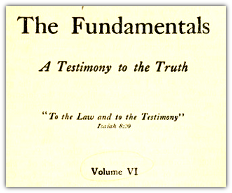(About this series)
CHAPTER II — AT-ONE-MENT BY PROPITIATION
BY DYSON HAGUE, VICAR OF THE CHURCH OF THE EPIPHANY, TORONTO, CANADA; PROFESSOR OF LITURGICS, WYCLIFFE COLLEGE, TORONTO; CANON OF ST. PAUL’S CATHEDRAL, LONDON, ONT., 1908-1912
The importance of the subject is obvious. The Atonement is Christianity in epitome. It is the heart of Christianity as a system; it is the distinguishing mark of the Christian religion. For Christianity is more than a revelation; it is more than an ethic. Christianity is uniquely a religion of redemption. At the outset we take the ground that no one can clearly apprehend this great theme who is not prepared to take Scripture as it stands, and to treat it as the final and authoritative source of Christian knowledge, and the test of every theological theory. Any statement of the atonement, to satisfy completely the truly intelligent Christian, must not antagonize any of the Biblical viewpoints. And further; to approach fairly the subject, one must receive with a certain degree of reservation the somewhat exaggerated representations of what some modern writers conceive to be the views of orthodoxy. We cannot deduce Scriptural views of the atonement from non-Biblical conceptions of the Person of Christ; and the ideas that Christ died because God was insulted and must punish somebody, or that the atonement was the propitiation of an angry Monarch-God who let off the rogue while He tortured the innocent, and such like travesties of the truth, are simply the misrepresentations of that revamped Socinianism, which is so widely leavening the theology of many of the outstanding thought-leaders of today in German, British, and American theology.


 (
( Republished with permission. Originally appeared in
Republished with permission. Originally appeared in 
Discussion